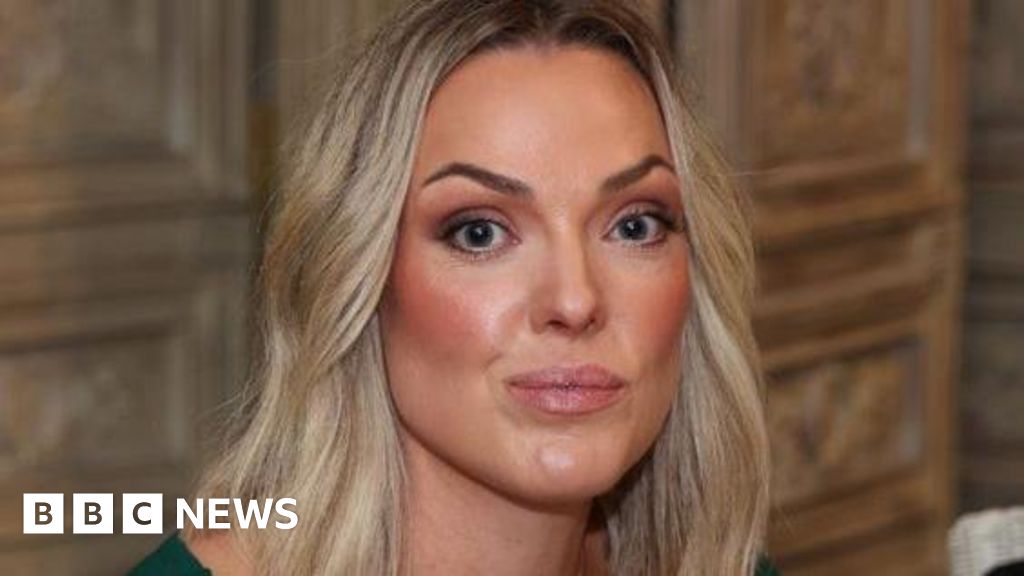Just a few months into the tentative rebirth of a new Syria, a bloody sectarian conflict is once again raging in the volatile southern borderlands.
War now threatens to tip the country over the edge and spill into an already unstable region.
Fighting has engulfed Suweida, a southern city with a majority Druze population—an ethnic-religious minority with roots in Shia Islam, whose adherents live in Syria, Lebanon, and Israel. Videos shared from the ground claim to show horrific summary executions and violence.
Neighbouring Israel, facing pressure from its own Druze population, has taken a violent stand. Missiles have rained down on government forces in Suweida and in central Damascus, pounding the country’s Defence Ministry and presidential palace.
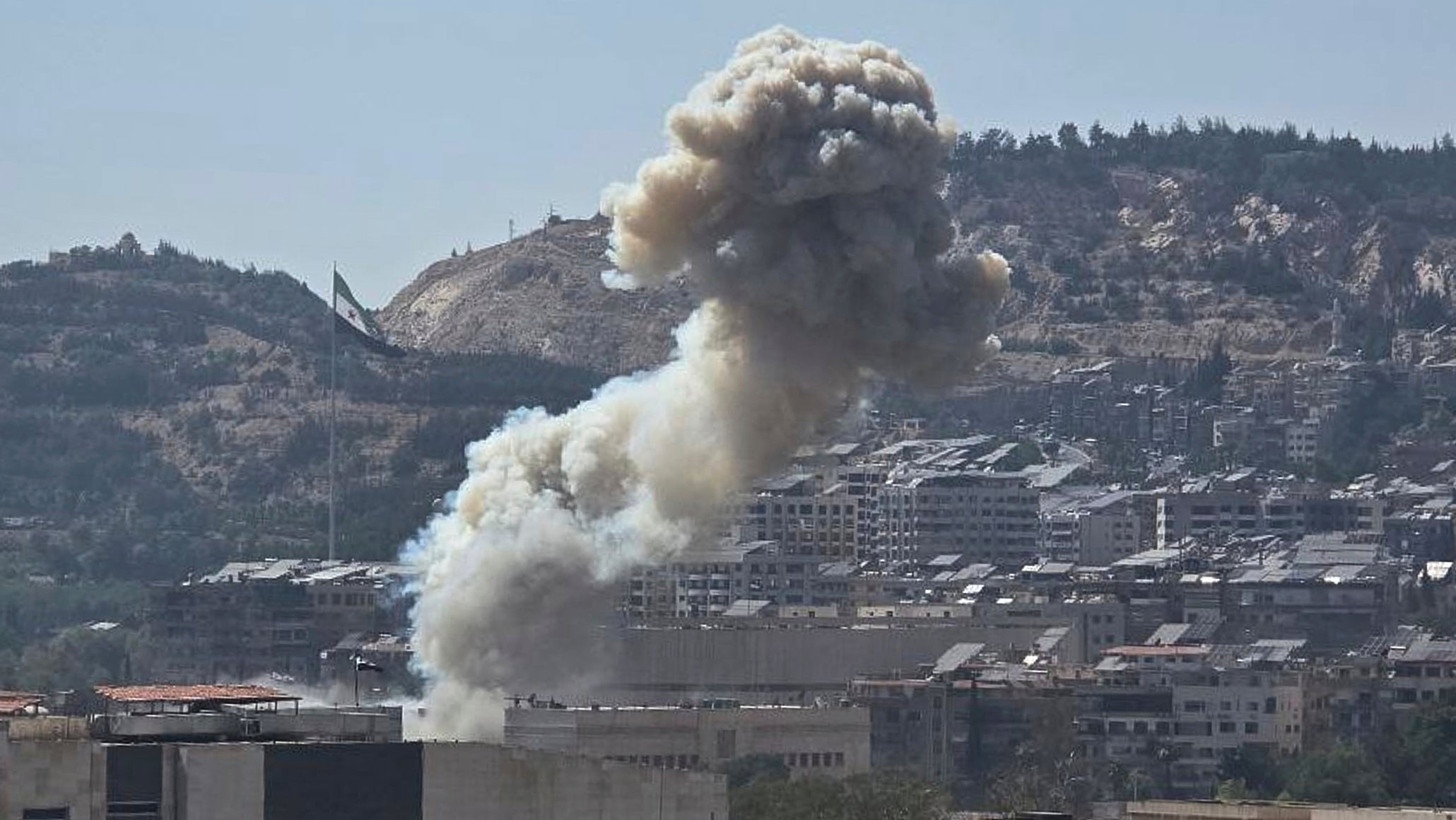
In this whirl of shrapnel and shellfire, hopes for a new era of peace in a nation long torn apart by dictatorship and a 14-year civil war are quickly fading. Instead, Syria appears on the brink of being dragged into yet another civil and international conflict.
“A lot of the dead have been shot in the head. Eighty per cent of the population are now refugees in the surrounding villages. It’s a disaster,” says Samer, (not his real name) a Druze journalist who spent years clandestinely reporting from Suweida during Syria’s bloody civil war.
Samer spoke to The Independent from a partially functioning hospital in Suweida, where he said hundreds of the injured and dead were taken. He asked to remain anonymous for fear of his life.
“We are trying to bury the bodies around the hospitals because of the smell and because we are afraid of infection. Some of them shot in the head, some killed by bombing,” Samer adds.
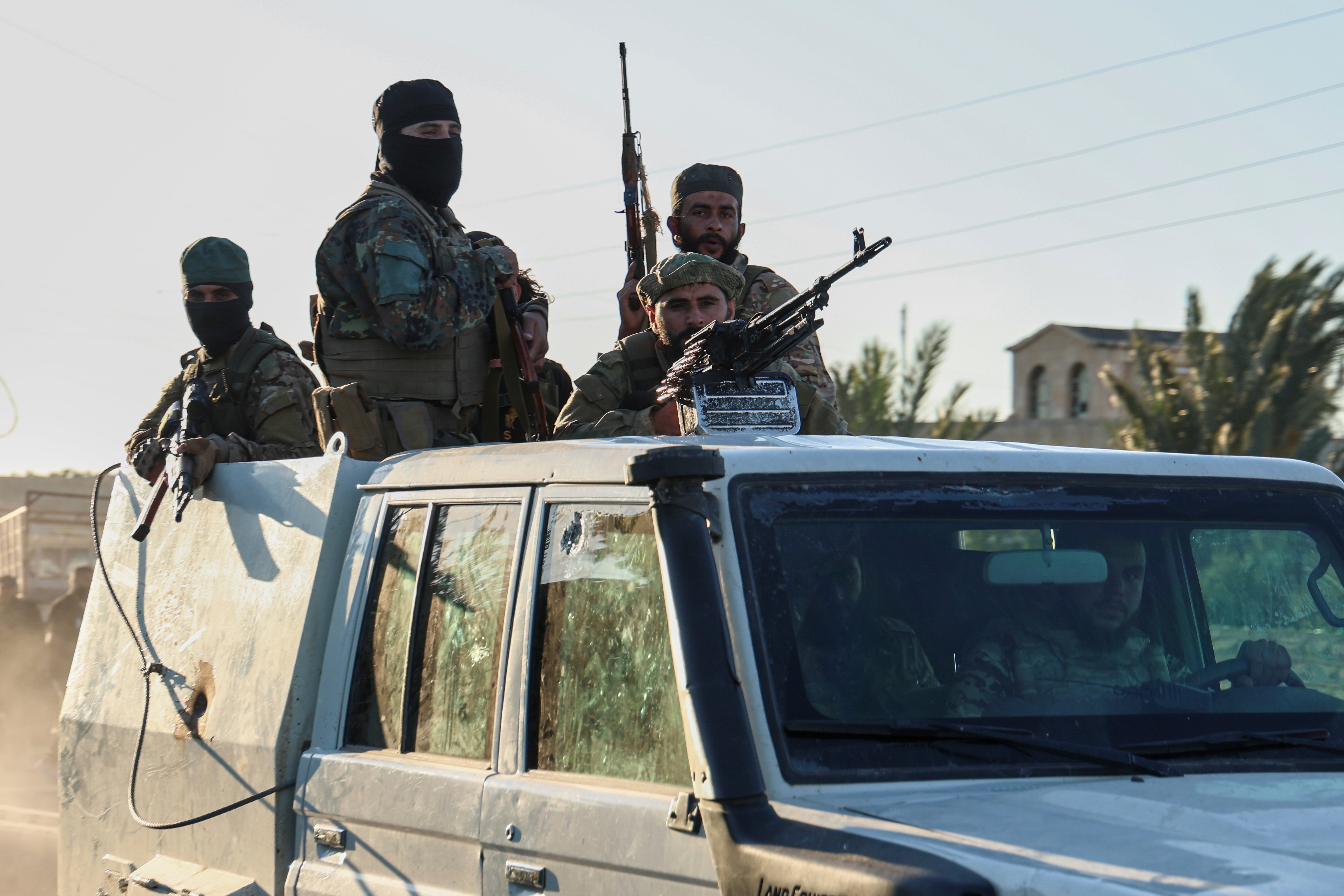
Samer described how, following a tit-for-tat slew of kidnappings, bloody battles have raged between Syria’s Druze fighters and local Bedouin Arab armed factions. Damascus then sent troops to quell the fighting, but they were drawn into the violence and accused of widespread violations against the Druze. The Independent has repeatedly reached out to multiple branches of the new government for comment and has yet to receive a reply.
Residents of the area told The Independent that Druze citizens had been shot at close range in their homes or in the streets by troops who appear to be government forces – videos shared online show people in military fatigues shooting dead men on their knees. In one video, which fact-checking website Verify Syria said it has verified, a group of men in fatigues force three men to jump off a balcony of a multi-storey building as they are shot. The Independent has been unable to independently confirm any of the videos but the death toll is climbing.
Outside of combatant deaths in battle, the Syrian Network for Human Rights said more than 320 have been killed by summary executions, other forms of violence, and in Israeli strikes. The Syrian Observatory for Human Rights, another monitoring group, has reported a total death toll of at least 940 people.
The United Nations says at least 87,000 people have been displaced within Suweida governorate and towards neighbouring Daraa. The area has been unable to receive much-needed humanitarian and medical aid due to ongoing clashes.
” style=”border:0″>
After the initial heady celebration following the overthrow of longterm autocratic Bashar al-Assad in December by Islamist-led factions, cracks in Syria’s diverse society have started to show—and deepen.
The surge in violence underlines the challenges facing interim President Ahmed al-Sharaa, whose former militant faction Hayat Tahrir al-Sham—a onetime al-Qaeda affiliate that has distanced itself from its jihadi past – led the charge against Assad.
But since then, he has struggled to assert control over the south and areas near the Israeli border.
While Mr Sharaa has been buoyed by rapidly improving ties with global powers, including US President Donald Trump’s administration, the violence has highlighted lingering sectarian tensions and widespread distrust among minority groups towards his Islamist-led government. That distrust has only deepened following the mass killings of Alawites in March.
Deadly clashes have now erupted in the south, with Syria’s large Druze community accusing Bedouin tribes of kidnappings and summary executions. Experts warn that the Syrian government has done little to stop this.
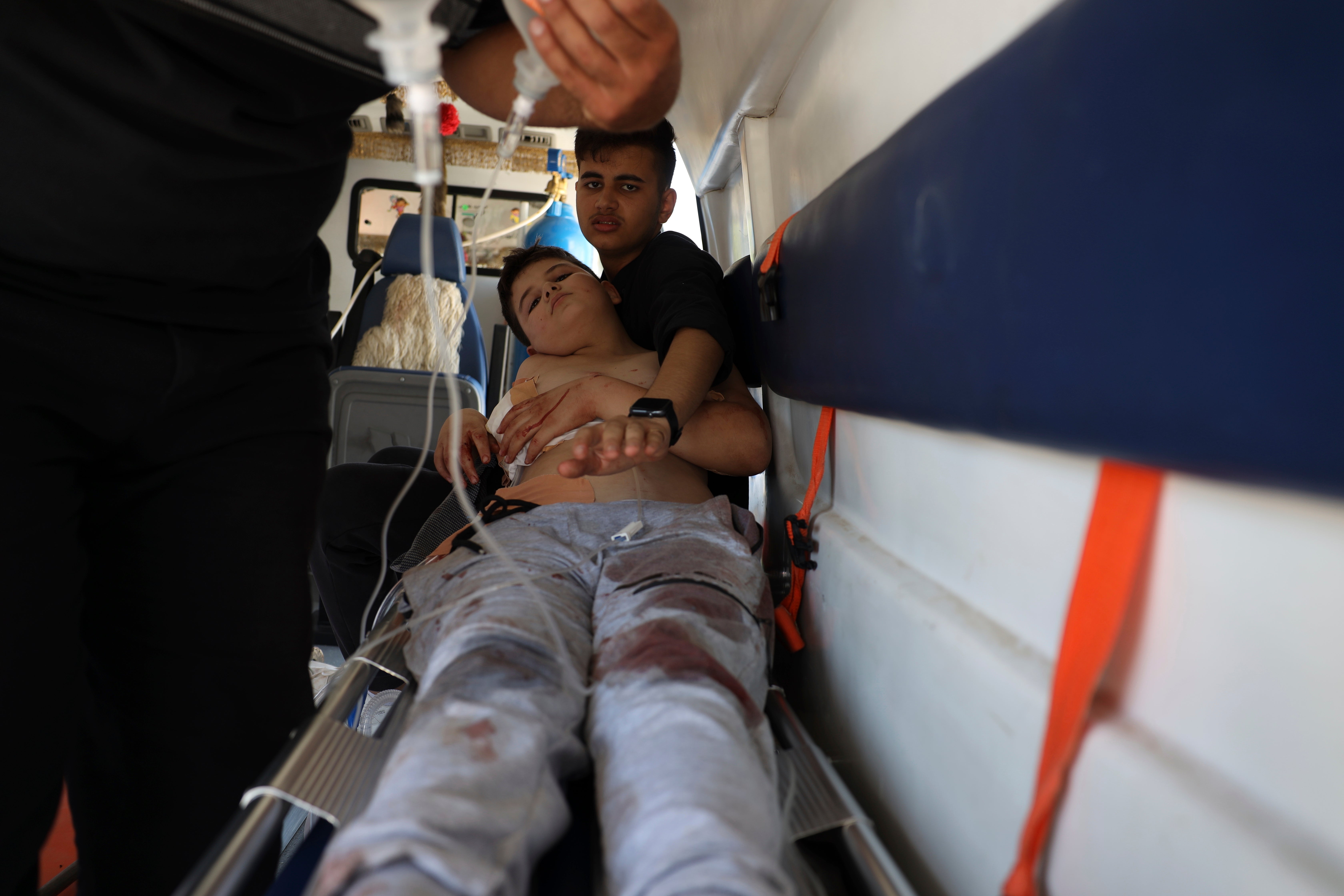
“Instead of pursuing an inclusive, reconciliatory approach to reintegrate Suweida into the Syrian state… the authorities keep making the wrong choices,” said Armenak Tokmajyan, non-resident scholar at the Carnegie Middle East Center.
He said that while there had been rounds of dialogue with powerful Druze leaders, the discussions were largely focused on disarming them.
“Despite divisions within the Druze community, most… were unwilling to hand over their weapons without clarity on the future shape of the state. Then came the recent escalation, which I think could have been averted had the authorities exercised self-restraint and not immediately resorted to violence.”
This approach has backfired. Druze leaders who have taken a harder stance against the government, like influential Sheikh Hikmat al-Hijri – who had even been accused from within the Druze community of helping instigating the tensions and violence – are now gaining greater support.
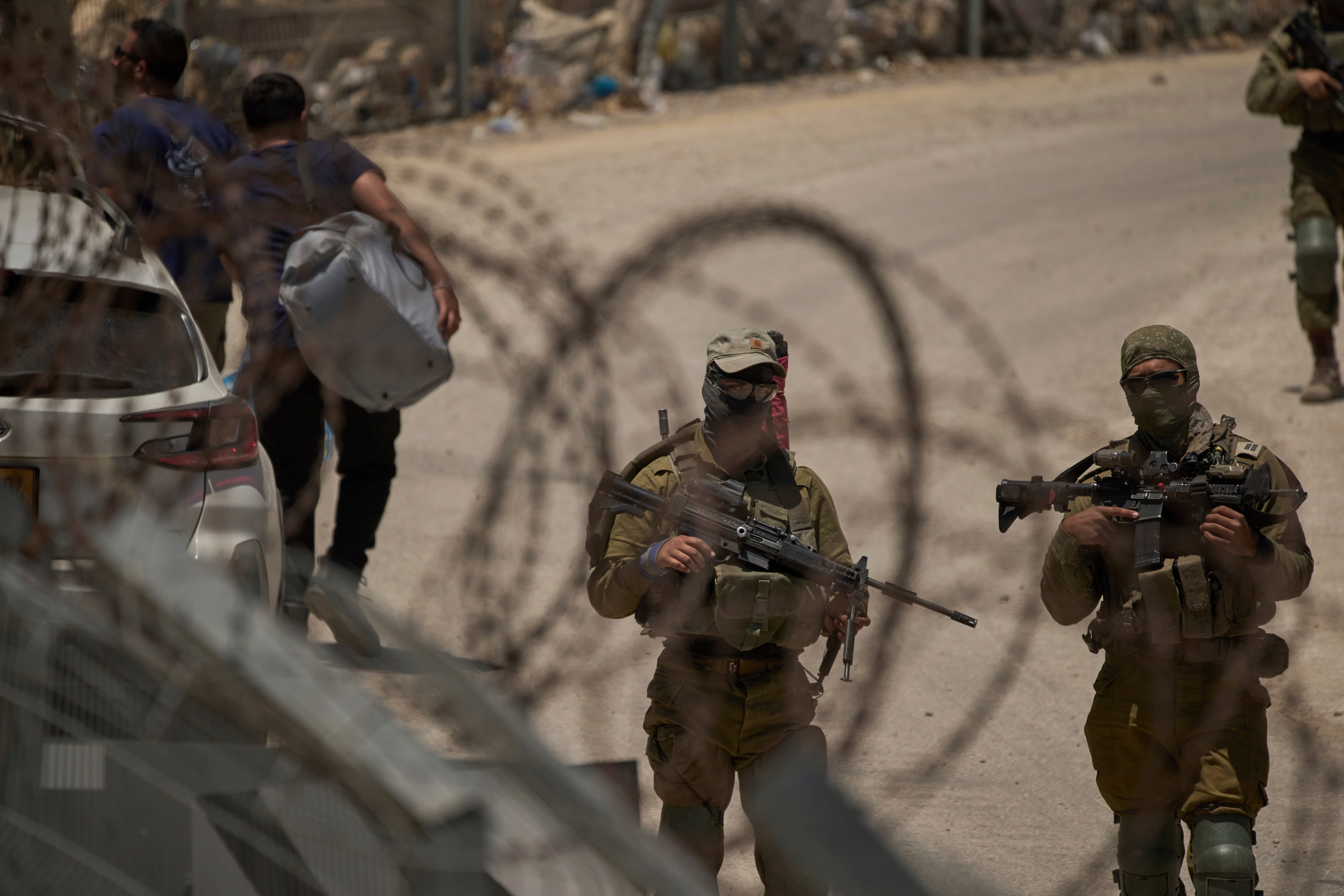
Amid this chaos, Israel has entered the fray.
From the early days following Assad’s ousting, Israel has been bombing military bases across the country. By day two, residents in Syria’s restive southern borderlands told The Independent that Israeli forces were already conducting patrols.
“The Israelis took all the weapons from the people,” says Ahmed Hassoun, head of the municipality of Hader, a Druze town just 2.5 miles from the border with Israeli-occupied Golan.
“Most days they are here. It’s become a fact for us. We can do nothing. Their forces are coming in and out—we are helpless. We are just civilians. What can we do with this reality?”
Just a mile from the border area outside Hamidiyah town, Moussa, a local leader who is not Druze, spoke to The Independent next to a sandbank he said Israeli forces had clawed out of the earth. “The only language Israel understands is force. But we want a peace deal between Israel and the new Syrian government—with conditions,” he said.
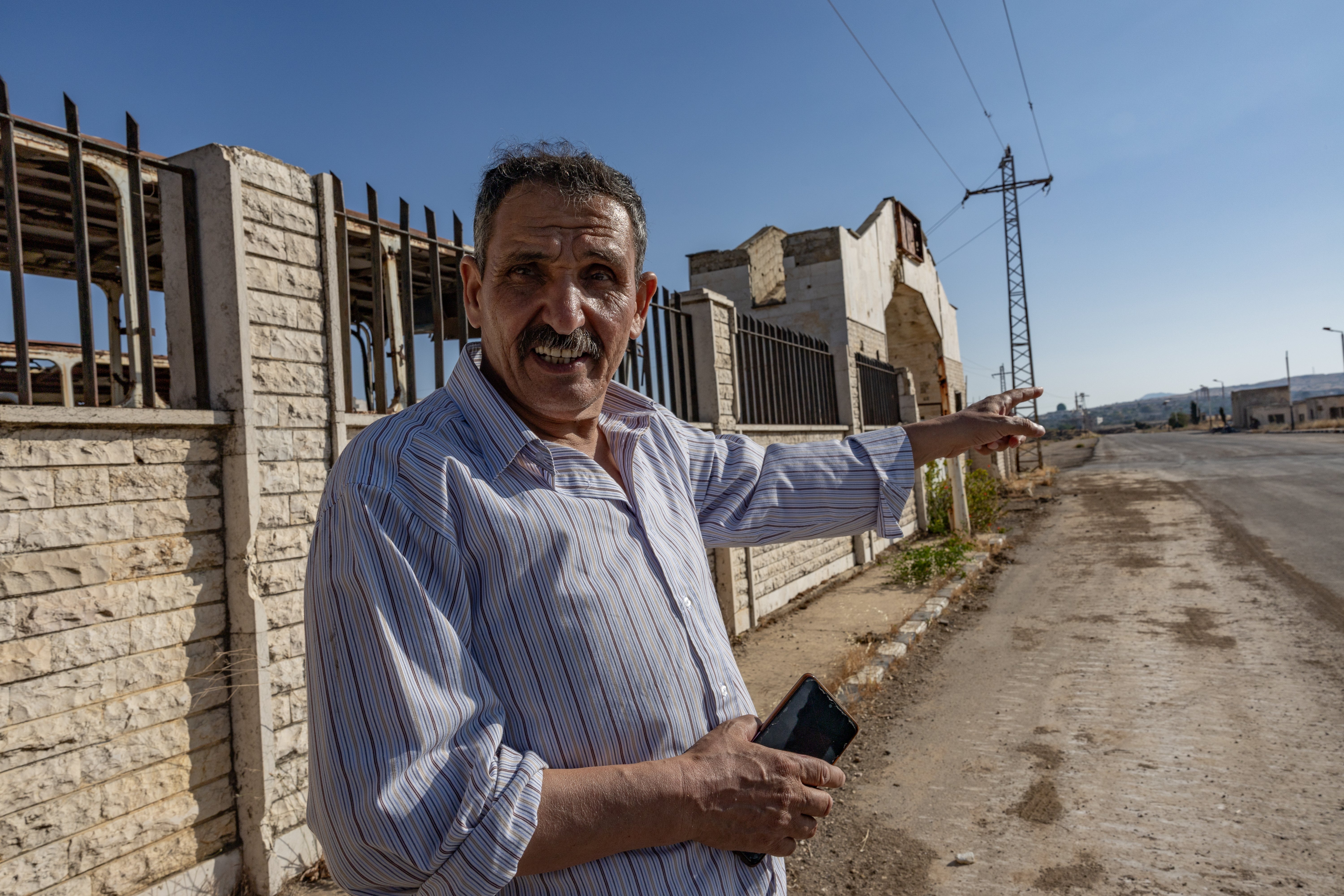
In Suweida, Samer said that Israel’s claims that it has come to the “rescue” of the Druze has only stoked pre-existing sectarian tensions that have simmered and flared throughout the 13-year civil war. “Just a few months after liberation, Israel has mixed the cards in the south,” he added.
Israel fears a build-up of Islamist Sunni forces along its northern border, while simultaneously facing pressure from the Druze minority in Israel, who have been concerned about their kin across the border.
More than half of the roughly 1 million Druze worldwide live in Syria. Most of the other Druze live in Lebanon and Israel, including in the Golan Heights, which Israel captured from Syria in the 1967 Mideast War and annexed in 1981.
The Druze minority in Israel, many of whom serve in the Israeli military, are often fiercely loyal to the Israeli state but tensions with Israeli Prime Minister Benjamin Netanyahu’s political party Likud have grown in recent years.
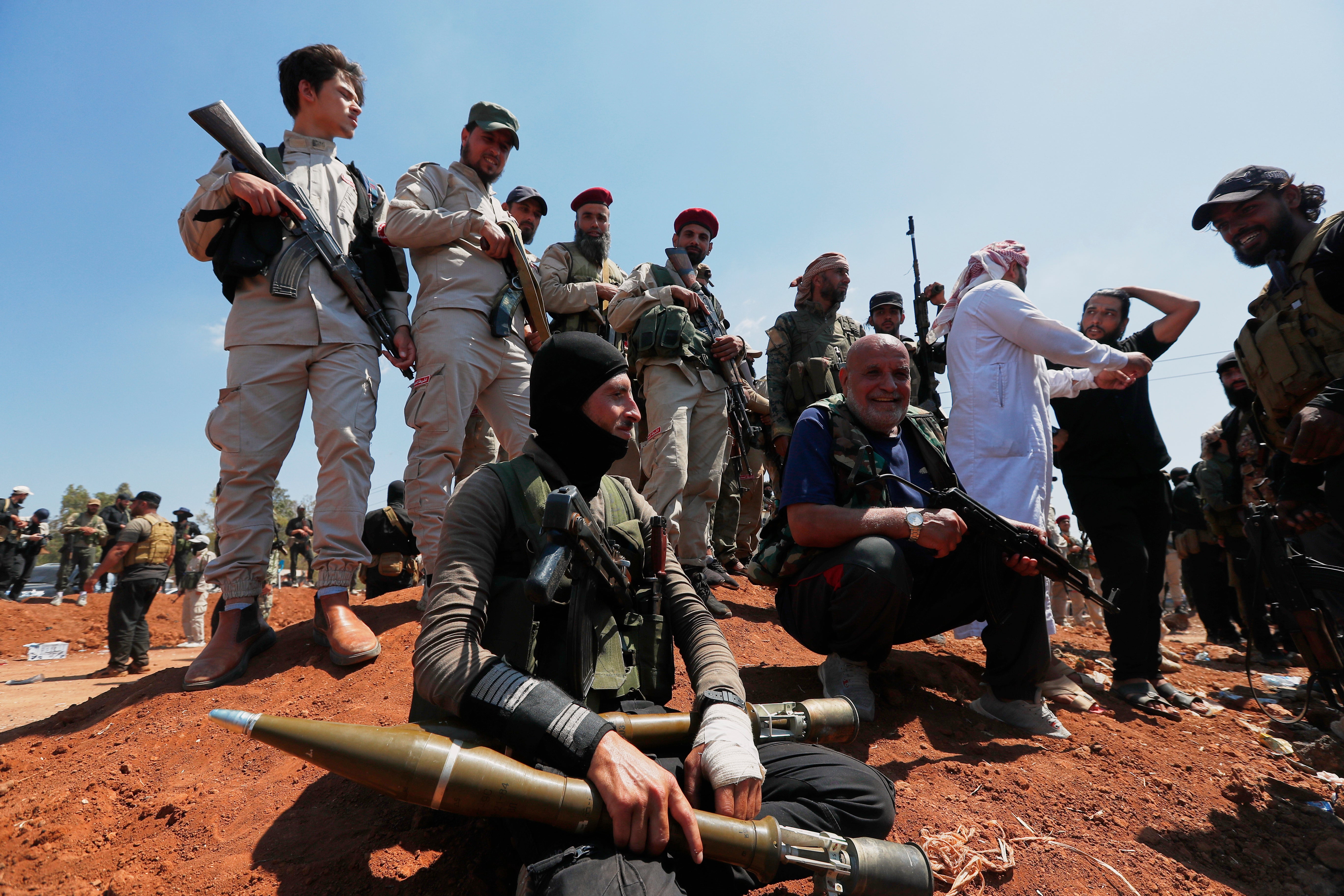
With violence erupting in Suweida, Mr Netanyahu ordered the bombing of Syrian government forces and struck the Defence Ministry in Damascus last week, stating that the strikes were intended “to save our Druze brothers and to eliminate the gangs of the regime.” He said Israel had established a policy demanding the demilitarisation of territory near the border, stretching from the Israeli-occupied Golan Heights to the Druze Mountain, east of Suweida.
Israeli military expert Amos Harel told The Independent Israel was facing growing domestic pressure from its Druze minority. Some recently crossed the border, causing “chaos” with Israeli border guards briefly losing control.
The Israeli military issued a statement on Saturday saying it “emphasises that crossing the border to Syria constitutes a criminal offence and endangers the public, as well as IDF soldiers.”
“I’m not sure there is a goal,” Harel said. “The end result is yet unclear but the element that changes everything is the Trump administration.”
The United States has stated it did not support the Israeli strikes. On Friday, an Israeli official said it had agreed to allow Syrian forces limited access to the Suweida area for two days. But many fear that this is just temporary and that Israel is trying to leverage internal domestic turmoil in Syria to keep it weak.
In Hader, Druze leaders say they just want their “normal rights” and decentralisation from Damascus.
In Suweida, where a tentative ceasefire is fast collapsing, the biggest fear is yet more massacres.
“There is a ceasefire in place but five minutes ago government forces attacked one areas by drones,” says Samer, with desperation. “The Druze people just want safety. They don’t want to be afraid of other factions and sects. They don’t want to separate from the rest of Syria. We want to live as citizens, without fear of others. That’s it.”





